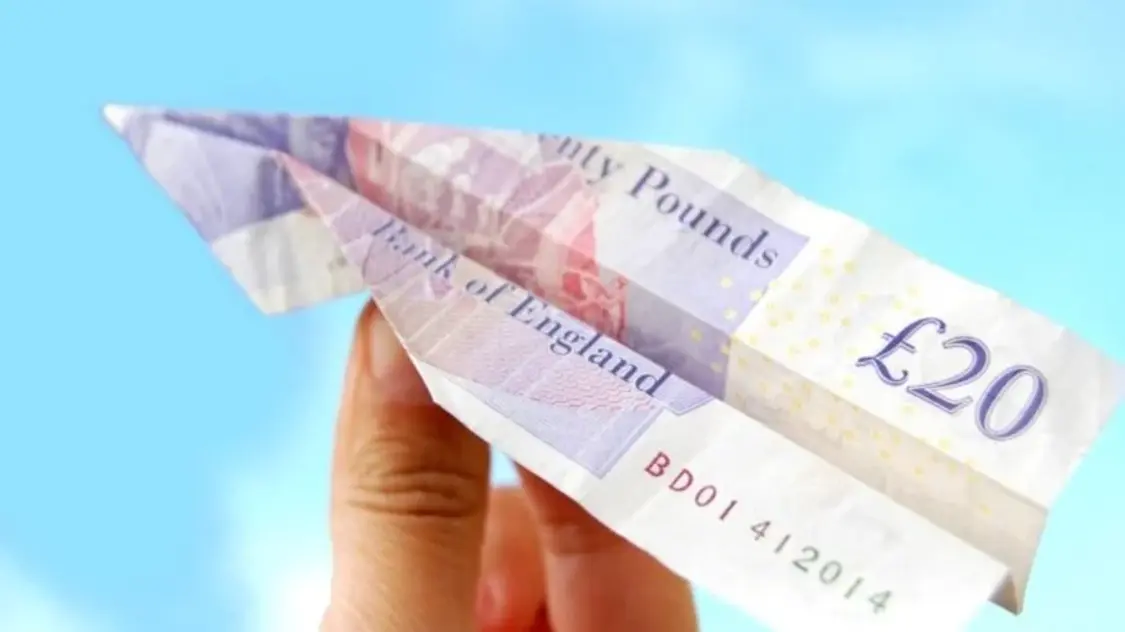Making finance flows consistent with a low emissions pathway and climate-resilient development is one of the key aims of the Paris Agreement. Nowhere is this more important than in aviation – a sector with huge decarbonisation challenges that require enormous investment.
The problem with decarbonising aviation
Two things are true: decarbonising aviation is both necessary and difficult.
It’s necessary because flying is terrible for the climate. Aviation has contributed about 4% of human-induced global warming to date and could account for around 22% of global annual CO2 emissions by 2050. Yet more and more people are flying – there were 310 million passenger journeys in 1970 and 4.5 billion in 2019 – and predictions suggest annual emissions will more than double by 2050.
So we need to do something about it if we’re going to get to net zero.
But it’s difficult. With cars or home heating, technologies such as direct electrification are readily available to help get you pretty close to zero emissions. But we’re still quite far away from a true zero-emission technology or fuel that works for flights of all distances.
Is there a solution?
The global growth in flying has always outpaced emissions reductions in the sector. So we need to do at least two things if the aviation sector is going to reach net zero:
- Reduce flying as much as possible, in the immediate to short term; and,
- Invest huge amounts of money into mid- to long-term solutions: high speed rail, new fuels, and new technologies.
We also need to do other, complementary things, such as taxing aviation properly so that it is paying for the pollution it causes to the environment.
To give you an idea of the scale of the finance required to decarbonise aviation, the Energy Transitions Commission puts the figure needed at around $175 billion each year between 2022 and 2050. That’s about $4.7 trillion from now until 2050.
Pulling legal levers
At Opportunity Green, our legal team looks at strategic legal interventions that can impact these finance flows.
Most climate-based legal challenges in the aviation sector are based on specific projects, like opposing individual airport expansions. But a broader, strategic approach offers the opportunity to effect systemic change in the sector by redirecting finance and highlighting the climate risks of investments in the aviation sector.
Challenging the ‘rules of the game’
For example, this month we launched a legal challenge to the EU Taxonomy – a classification list of EU-certified ‘green’ activities, designed to direct huge amounts of private finance to the green investments needed to get to net zero.
The Taxonomy should be a gold standard. But the inclusion of fossil fuel planes and ships that meet weak efficiency criteria in the Taxonomy has the potential to lock in high emissions for decades and jeopardise the EU’s climate goals.
Our legal challenge is the only remaining way to change these criteria. We’ve asked the EU Commission to rethink and set genuinely ambitious targets that help drive investment into the transformative change required in the aviation sector, rather than just support business-as-usual investment into inadequate marginal gains. The Taxonomy is designed to mobilise billions of Euros of investment and we can’t afford to get it wrong.
📰 “NGOs file a legal complaint with the European Commission for also sticking a green label on ‘highly polluting’ planes and ships”.
— Opportunity Green (@opp_green) January 16, 2024
Find @alicemhancock‘s coverage of our legal challenge to the EU taxonomy in this morning’s @FT newsletter!https://t.co/U1RduwosYt
Highlighting climate risks and accountability
Legal approaches at the investment level can also help to crystallise the risk of climate inaction or inadequate action and highlight the precarious investment profile of climate-damaging activities.
Environmental risks account for the four most severe perceived global risks over the next 10 years. Yet the extent of climate risk, including legal risk, is not properly understood by companies and investors, risking investments in hugely damaging projects and technologies, and stranded assets. Legal interventions can help to bring those risks to the fore, and effect behavioural and sectoral change.
In 2023, we challenged the European Investment Bank (EIB) about its investment in a large airport expansion on Crete. It emerged during our investigations that the EIB had got its GHG emissions figures for the project wrong – by some 2,200%. We also found that those figures were based on a capacity projection that is millions of passengers less than those claimed by the operator of the project.
Whilst the EIB corrected the GHG emissions error on its website, the project had already been approved and the project team didn’t consider that the error needed to go back to the EIB Board.
The EIB may have now withdrawn its support from future airport expansions but it still needs to be held accountable for its current, decades-long investments in fossil-fuel intensive projects. This is particularly important as it publicly holds itself out as Europe’s ‘climate bank’ and claims that it is aligning all its operations with the Paris Agreement.
Legal challenges can shine a light on the physical and transition risks of these investments, as well as amplifying the legal risks of investments. Our aim is that more banks follow suit and withdraw financing from climate-damaging projects in the aviation sector.
Greenwashing and corporate accountability
Finally, we also look at changing the investment profile of unsustainable activities by challenging greenwashing and misleading claims that are made to consumers and investors. Greenwashing claims can challenge industry narratives of green investment profiles and disincentivise investments in inappropriate transition activities, helping to direct finance flows to genuinely sustainable solutions.
The aviation sector is already under the spotlight here. There’s a current case brought by Dutch NGO, FossielVrij against KLM in the Dutch courts, as well as numerous rulings by advertising regulatory bodies such as the Advertising Standards Authority (ASA) in the UK (for example, against Ryanair, Etihad, Air France-KLM and Lufthansa).
The ASA says there are “currently no initiatives or commercially viable technologies in operation within the aviation industry that would adequately substantiate absolute green claims“, so the aviation industry needs to tread extremely carefully when making any sustainability claims.
When it comes to solving the climate crisis, money matters. The law sets the framework for financial investment and we believe the law can help keep finance flows on the right track. We need to get investment in the transition right, because we don’t have time to get it wrong.


